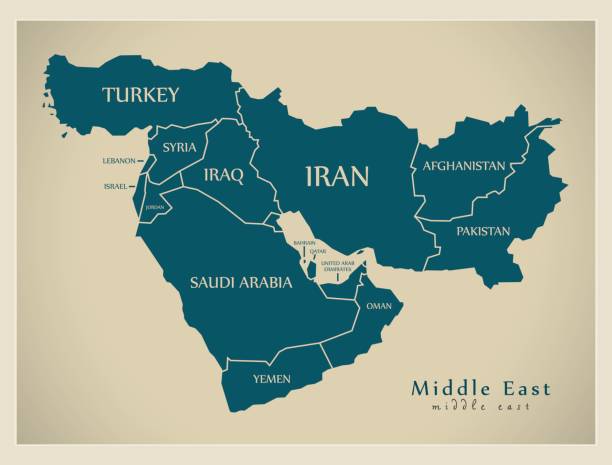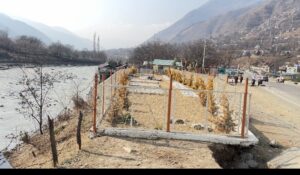Race for Regional Hegemony in the Middle East

Modern Map - Middle East with countries illustration
Opinion By| Farooq Lone
The Middle East or West Asia long known as one of the world’s most volatile regions, is witnessing a renewed struggle for regional dominance among its major powers, particularly Saudi Arabia, Israel, and Türkiye. Although the United States continues to play an important role as a security guarantor for several Gulf nations, its gradual decline in global influence and increasing engagement with China and Russia have created space for new regional players. These emerging powers are seeking to redefine the balance of power and fill the vacuum left by Washington’s relative retreat from the region.
Israel, regarded as the only nuclear power in the Middle East, has made significant efforts to assert itself as a regional hegemon through both soft and hard power strategies. Tel Aviv has successfully improved ties with several Arab nations, securing normalization agreements with the UAE, Bahrain, and potentially even Saudi Arabia in the future. However, Israel faces persistent challenges due to the unresolved Palestinian issue and its aggressive military posture toward neighboring states. The recent Israel–Hamas conflict, which resulted in large-scale destruction and civilian casualties in Gaza, drew widespread international criticism and strengthened global support for Palestine. These factors continue to undermine Israel’s ambitions for regional leadership.
Saudi Arabia, with its robust economy, religious influence as the custodian of Islam’s two holiest sites, and growing global outreach, is also striving for regional prominence. Under the leadership of Crown Prince Mohammed bin Salman, Riyadh is leveraging its economic power through trade, investment, and innovation, while promoting modernization in areas such as sports, fashion, and technology. However, the kingdom faces significant challenges, particularly concerning human rights issues and its stance on the Palestinian cause. Whether Saudi Arabia chooses to take a decisive political position on Palestine or limit its role to humanitarian aid will be a key factor in determining its regional influence.
Türkiye, the only Muslim-majority member of NATO, is another assertive contender in the regional power equation. Strategically located at the crossroads of Europe, Asia, and the Middle East, Ankara has utilized its position to emerge as a critical hub for trade, energy, and connectivity. It has strengthened relations with Gulf nations, established a military base in Qatar, and expanded its influence in post-war Syria following the fall of the Assad regime in 2024. Despite its growing clout, Türkiye faces diplomatic and strategic dilemmas — particularly its approach toward Israel and the Palestinian issue. How Ankara balances pragmatism and ideology will determine the extent of its regional leadership.
Beyond these three contenders, smaller nations such as Qatar, the UAE, and Iran are also seeking greater regional roles. However, their ambitions are constrained by limited military strength and strategic depth. The Middle East thus remains a dynamic theater of competing aspirations, where regional players continue to jostle for influence in an evolving geopolitical landscape.
Author: Farooq Ahmad writes on international relations. He can be reached at lonefarooqahmad80@gmail.com.



